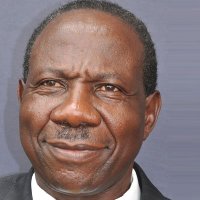Uganda to harden on tax dodgers as economy grows at 5.8%
June 14, 2018— The government wants to raise the ratio of revenue to GDP from the present 14.4 pc to 14.6 pc by mid next year with plans to step up efforts against tax dodgers by strengthening business intelligence and risk management functions to detect non-compliance among other key measures.

Kasaija said culprits can face punitive measures such as being blacklisted from government contracts.
During the financial year just ending, tax and non-tax revenue is estimated at UGX14.5 trillion (about $3.7 billion), equivalent to 14.2% of GDP. In 2018/19 the government hopes to raise UGX16.3 trillion in revenues.
Presenting the National Budget this afternoon finance minister, Matia Kasaija said, “For example, about 30% of eligible VAT is not collected, translating into a loss of about 4% of tax to GDP. VAT evasion involves the fraudulent use of non-existent transactions claiming input tax against purchases and expenses that were not incurred, and issuance of invoices for business transactions for which there is no genuine supply/movement of goods and services.”
He said, “So far, Uganda Revenue Authority (URA) has recovered UGX605 billion from companies evading tax and another 2,100 companies are undergoing comprehensive review to determine the liabilities not yet paid. Other measures include cancellation of the tax registration of taxpayers involved in VAT fraud, and revocation of all Tax Clearance Certificates issued to the taxpayers involved including blacklisting them for PPDA purposes.”
With a budget theme of ‘Industrialisation for Job Creation and Shared Prosperity,’ Kasaija said the size of Uganda’s economy is now equivalent to UGX101.8 trillion ( about $27.9 billion) and during 2017/18 it grew by 5.8 pc, up from the 3.9 pc recorded the previous financial year.
Total domestic revenue is projected to be UGX 16.4 trillion in financial year 2018/19, an increase of UGX1.9 trillion over the previous 12 months. He said economic stability has been consistently maintained with the economy growing at an average annual rate of growth of 6.5% for the last 30 years, together with fairly low inflation.
Kasaija said, “Incomes have increased with average per capita incomes nearly doubling in the last eight years, from UGX1,354,000 in FY2009/10 to UGX2,684,000 in FY 2017/2018, in spite of a rising population,” he told the gathering led by President Yoweri Museveni.
“The services sector which grew at 7.3% compared to 5.4% last financial year. This performance was mainly as a result of improvement in the financial, Information and Communications and trade sub-sectors. The Industrial sector which expanded by 6.2% compared to 3.4% last financial year due to good performance in construction and agro-processing, and recovery in the mining and quarrying sub-sectors,” he said.
The Minister said agriculture sector growth doubled during the year to 3.2% compared to 1.6% last year. The improved performance was mainly due to better weather conditions, control of pests and diseases and targeted Government interventions, particularly seed distribution and provision of better extension services.
Turning to Uganda’s trade, Kasaija said export earnings rose by 9.6% to $3.93 billion in the period July 2017 to March 2018 from $3.59 billion a year earlier. This was mainly due to a rise in the export volumes of beans, coffee, tea and maize. Over the same period, exports to the rest of the East African Community (EAC) grew from $792.3 million to $943.5 million; while exports to Europe grew from $415.8 million to $ 466.1 million.
“On the other hand, imports increased by 16.4% valued at $5.7 billion in the period July 2017 to March 2018 from $4.9 billion over the same period the previous year. This was attributed to the increase in the prices of oil imports and the increased inflow of capital goods to support domestic investment, particularly in oil and gas, electricity and roads,” Kasaija said.
Kasaija said as at March 2018, public debt stood at $10.53 billion of which $7.18 billion is external and $3.35 billion is domestic. “The ratio of Public debt to GDP now stands at 38.1 percent in nominal terms. This is much lower than the threshold of 50% beyond which public debt becomes unsustainable. Our public debt is therefore sustainable over the short to medium term, even when we include the financing required for priority projects in the pipeline,” he said.
He said the government will focus on those areas that can spark faster industrialisation. “The NRM Government’s bold steps taken to invest in security and infrastructure development have set the stage for faster and sustained economic growth in Uganda. The financial year 2018/19 Budget goes further to support areas that will deliver inclusive growth especially in agriculture and its value chain, as this is the anchor for our quest for industrialisation,” he said.

 African Heads of state head to South Korea next week for Summit talks
African Heads of state head to South Korea next week for Summit talks
 Trading leads as main source of income for Ugandans
Trading leads as main source of income for Ugandans
 New leadership for bankers’ umbrella as total assets top $12 billion
New leadership for bankers’ umbrella as total assets top $12 billion
 Brussels Airlines to announce Nairobi service
Brussels Airlines to announce Nairobi service
 SITA promises enhanced travel experience after Materna acquisition
SITA promises enhanced travel experience after Materna acquisition
 Saudia’s 105 aircraft order stretches A320neo lead over rival Max
Saudia’s 105 aircraft order stretches A320neo lead over rival Max
